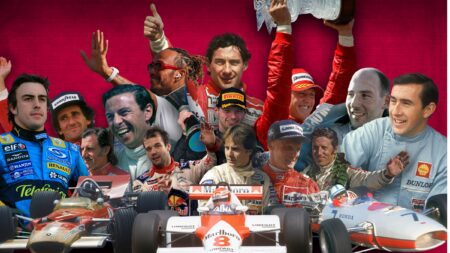Those two drivers have won ten of the last 11 championships, but where do they rank against the likes of Jim Clark, Gilles Villeneuve and Michael Schumacher? We’ve examined not just their qualifying and race results, but also their raw speed, tactical awareness, ability to adapt, and determination to win.
We’ve taken into account the machinery they had at their disposal, and the opportunities that they seized, as well as even less definable characteristics such as charisma and sportmanship.
After much debate, here is the result — at least until someone else forces their way further up the ranking: Motor Sport’s list of the 15 best F1 racing drivers.
15. Gilles Villeneuve
67 starts/2 pole positions/6 wins
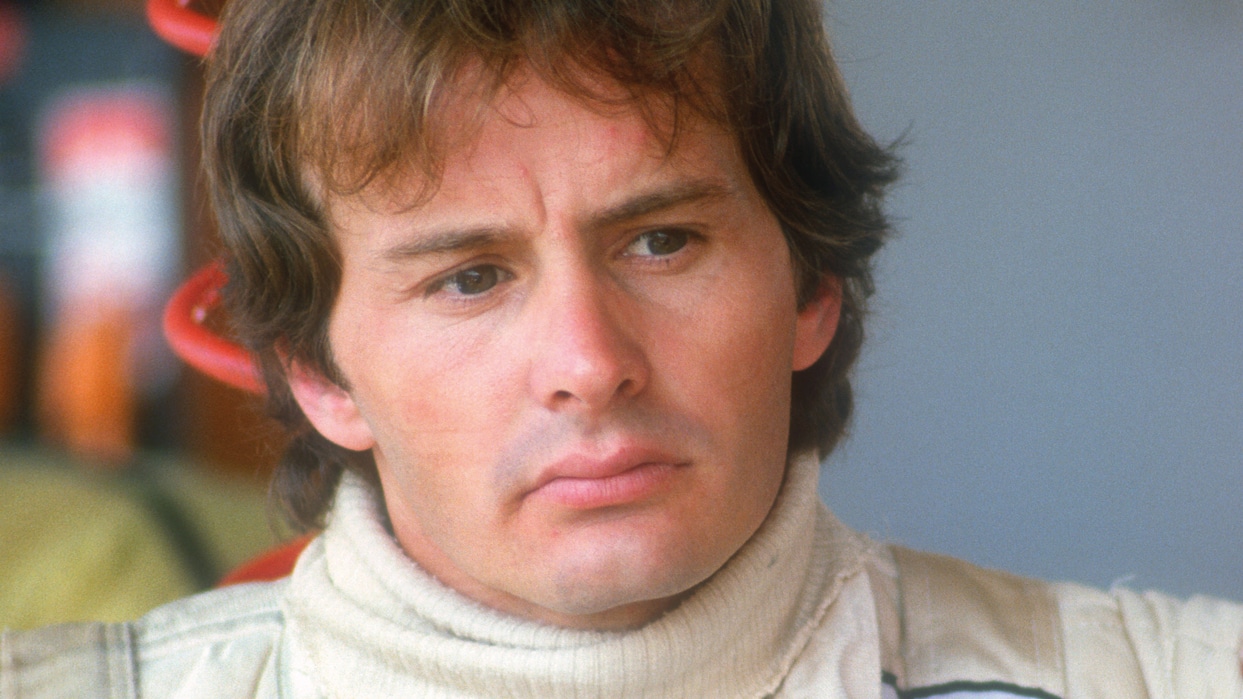
The F1 career of Gilles Villeneuve is radically misled by underwhelming statistics.
For the vast majority of his tragically short career, he was placed behind the wheel of uncompetitive machinery, but frequently managed to outperform the car with a talent for car control that mesmerised fans, even if he sometimes tacked corners on three wheels instead of four.
His natural speed also rendered fellow drivers dumbfounded. He was 9sec faster than anyone in the wet of Watkins Glen in 1979 and later put a “tractor” of a Ferrari (the 126C) on Monaco’s front row in 1981 while team-mate Didier Pironi qualified the sister car in 17th. His six grand prix victories were all drenched in some form or fashion of drama and he could have been world champion in ’79 — had he not graciously stepped aside to let team-mate Jody Scheckter take victory at Monza.
With better machinery underneath him, his miraculous feats would have undoubtably continued to grow in number — but a crash with Jochen Mass at Zolder cut his F1 story short.
Gilles Villeneuve profile & results
14. John Surtees
111 starts/8 pole positions/6 wins
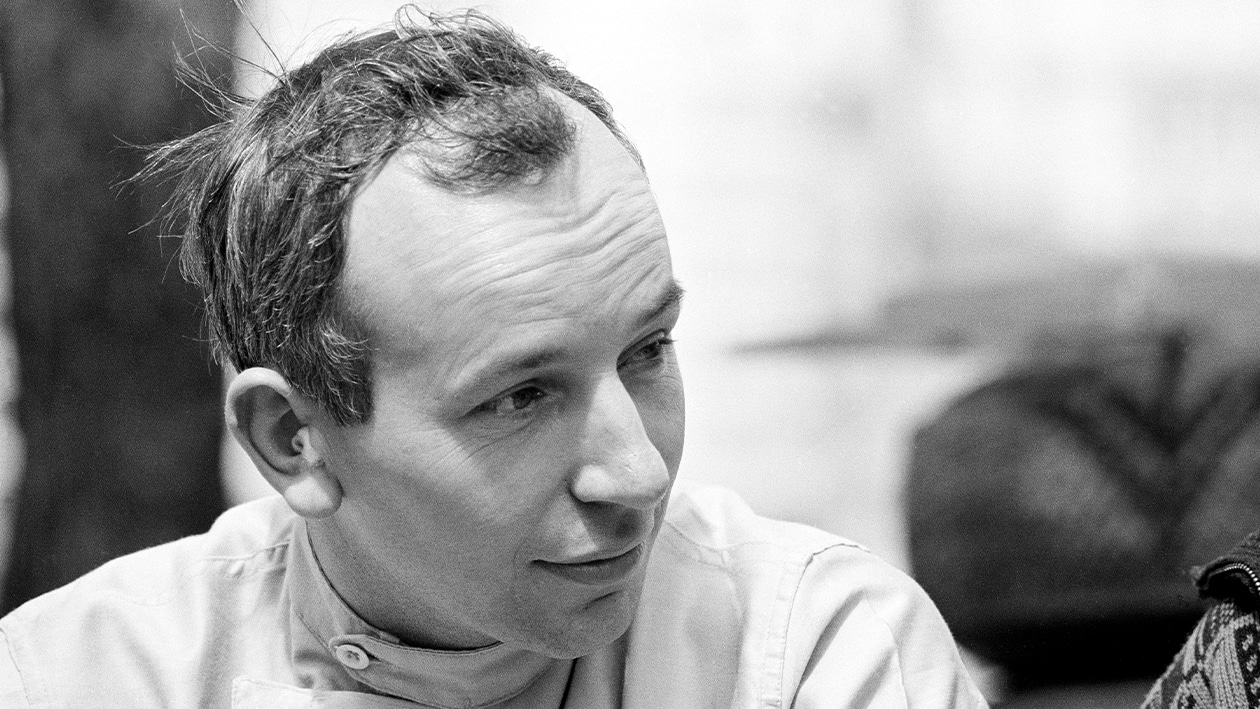
John Surtees refused to accept something couldn’t be done. He took on everybody and everything.
He remains the only man in history to successfully make the transfer from two wheels to four — winning world titles on both — and beat Jim Clark on equal terms in 1964.
Some said he had a chip on his shoulder but, if so, it was their snobbery that created it as he made his way without privilege. That will made for a giant of a driver; brave yet circumspect, sensitive but tenacious. But he left Lotus and Ferrari and the glory days passed too soon.
John Surtees profile & results
13. Graham Hill
176 starts/13 pole positions/14 wins
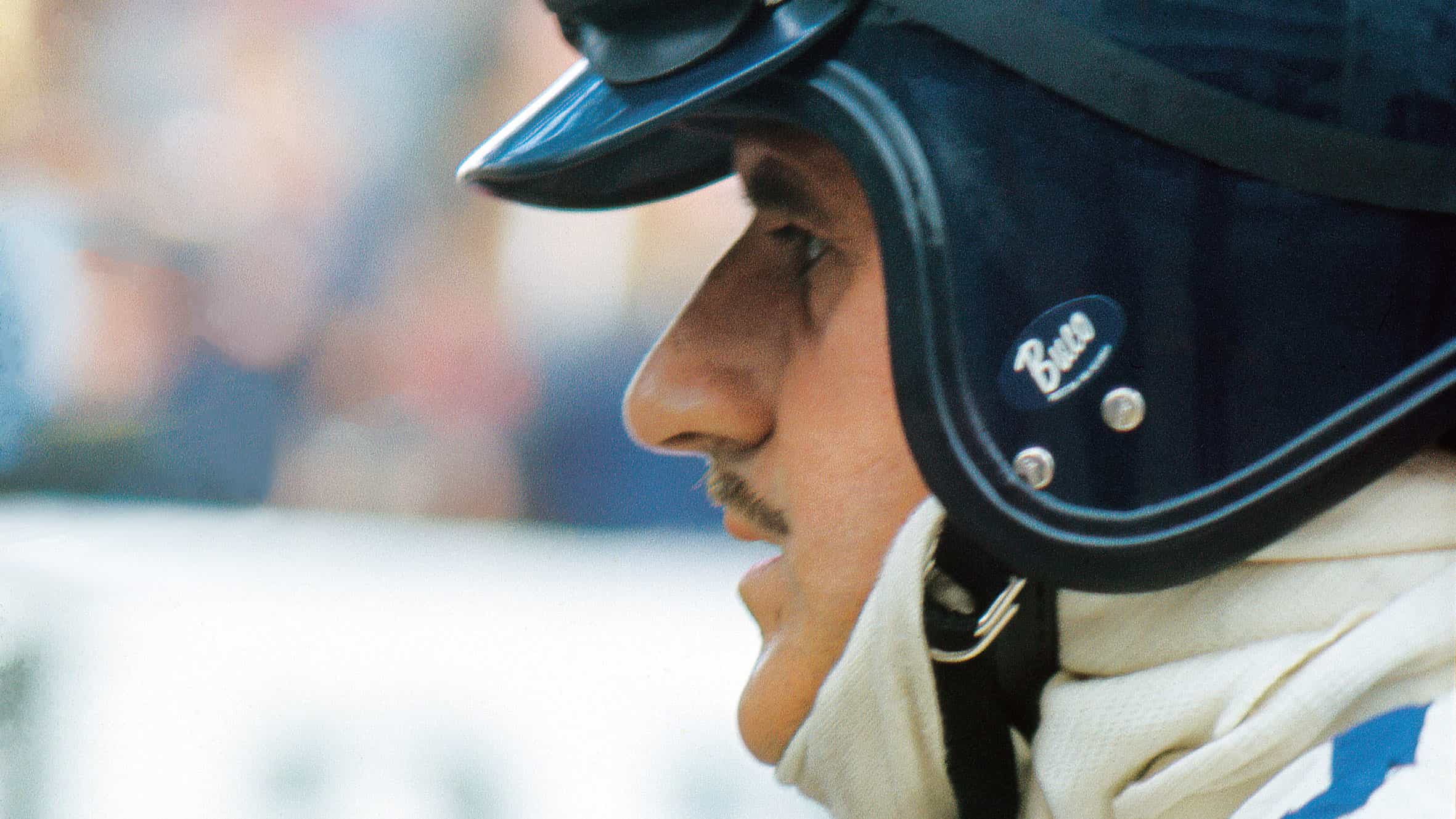
Graham Hill was a unique driver: blessed with sheer will rather than pure talent.
In eras where Jim Clark, Jack Brabham and John Surtees often set the pace, Hill played the part of the perpetual bogeyman — unrelenting in his pursuit. Whatever level someone else set, he could, given time, usually match it.
This approach eventually resulted in world F1 world championships in 1962 and ’68, alongside 14 race victories — five of which came at Monte Carlo — and a reputation rivalled only by the world championship’s very best.
His exploits outside of F1 should also be taken into account, as Hill remains the only driver in racing history to earn the Triple Crown: winning the Monaco Grand Prix (1963, ’64, ’65, ’68 and ’69), the Indy 500 (1966) and the Le Mans 24 Hours (1972).
12. Fernando Alonso
412 starts/22 pole positions/32 wins
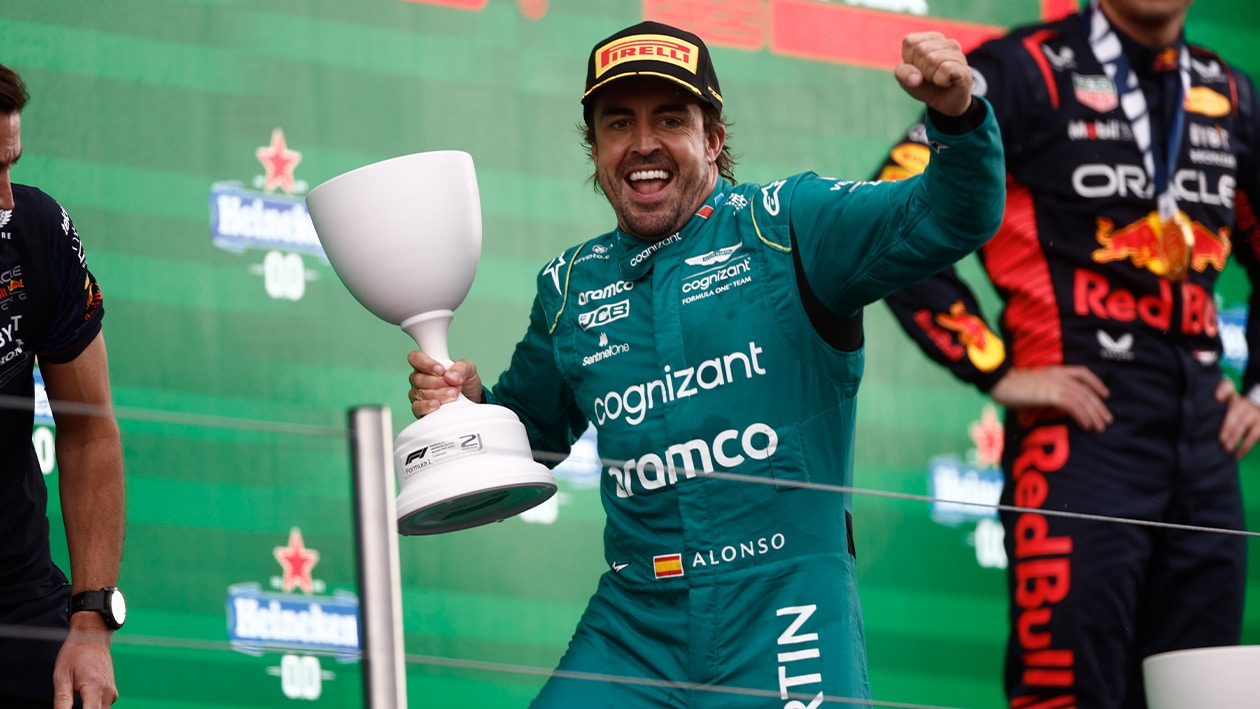
Fernando Alonso’s longevity in motor sport’s top echelon is rivalled by few.
He arrived a youthful sensation in 2001 with Minardi then made a prosperous move to Renault, where he was crowned a world champion in 2005 and 2006.
But even in the drama-fuelled years since then, which has included a bad-tempered clash with Lewis Hamilton at McLaren; a swashbuckling move to Ferrari that failed to deliver a championship; and then disastrous years back at McLaren, Alonso has still retained a world-renowned reputation.
Even aged 42, he proved he still had the ability to deliver when given the right car: scoring eight podium finishes for Aston Martin in 2023. With Adrian Newey on board for 2025, the Spaniard may still manage a final flourish before retirement.
Fernando Alonso profile & results
11. Alberto Ascari
32 starts/14 pole positions/13 wins
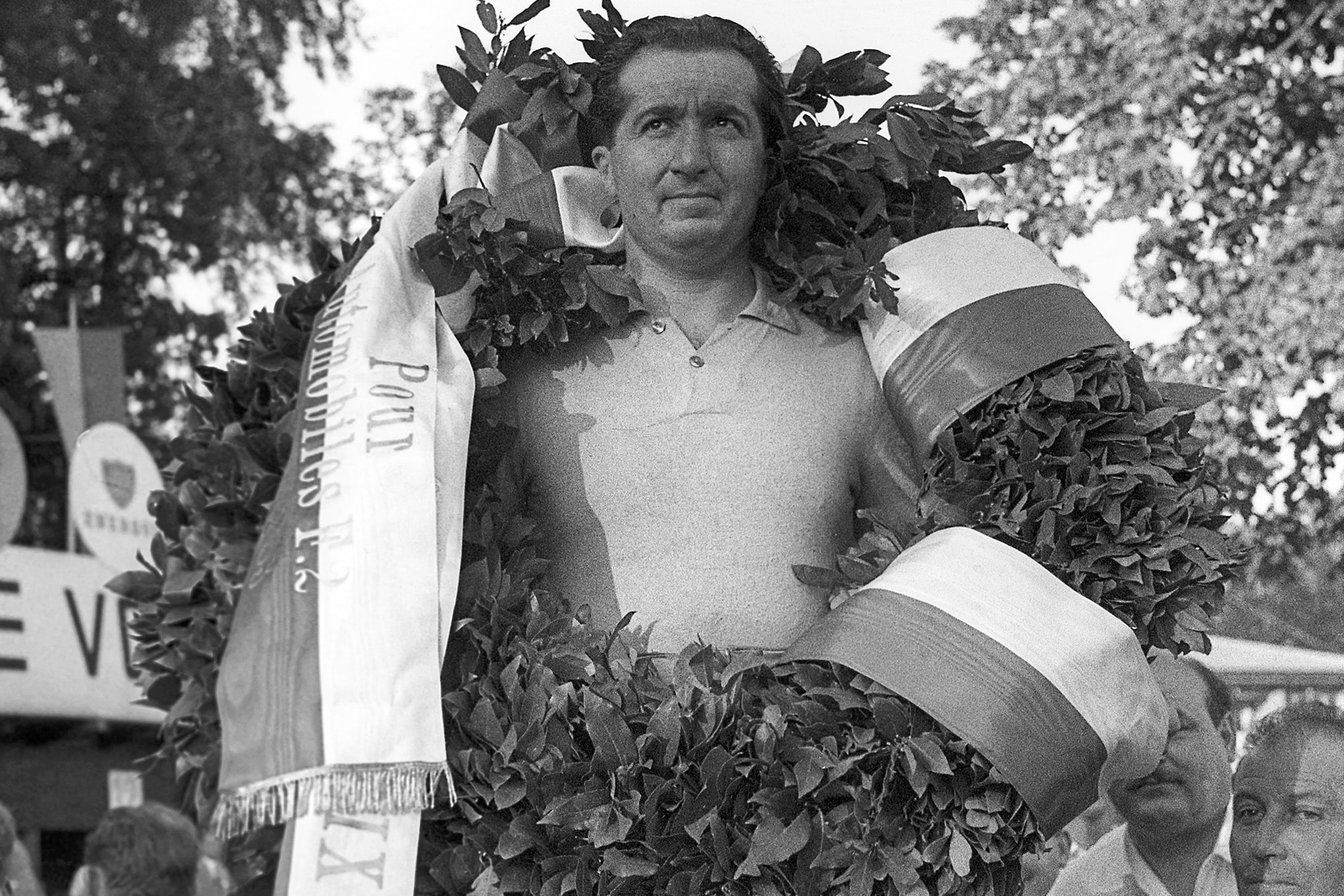
With a good Ferrari beneath him, Alberto Ascari was untouchable.
Like his father Antonio, he was fast, so fast. Some even reckoned him quicker than Fangio. He’d carry the speed into the corner smooth as cream, the car not seeming to recognise its speed and giving him an easy ride all the way through. He almost always led from the front, sometimes over a lap ahead by the flag. Like his father, he pushed to his limits even when this was was not required.
In the early 1950s, he converted his ability into one of the longest race-winning sequences in F1 history: victorious in all but one grand prix in 1952 and in all but four in 1953. In both years he was crowned world champion — the series’ first man to do the double.
Alberto Ascari profile & results
10. Niki Lauda
171 starts/24 pole positions/25 wins
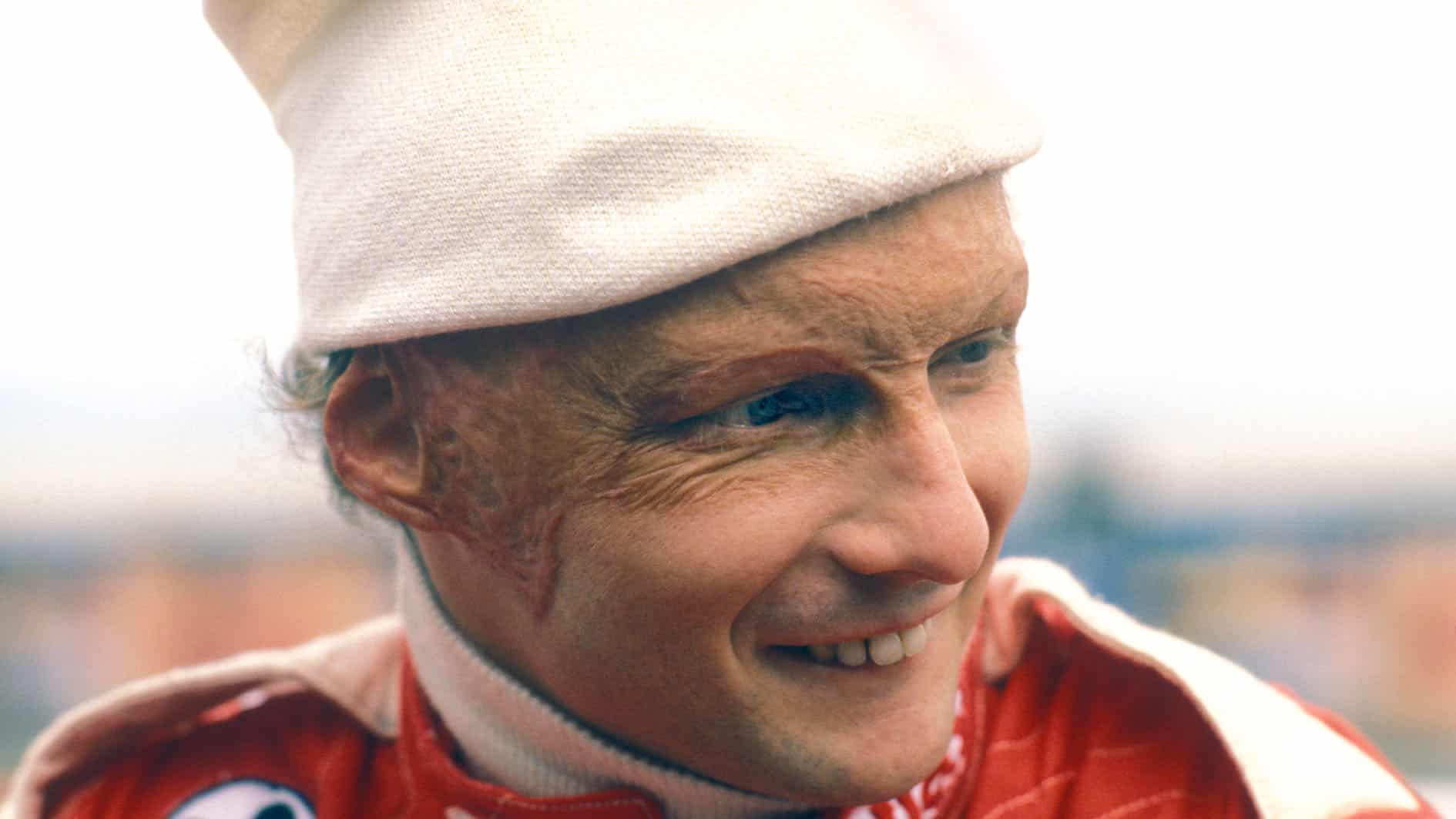
Niki Lauda was almost solely responsible for whipping Ferrari back into world-beating shape, as after joining the team in 1974, he delivered a world title in ’75. He then came back from near-death to lose out by a single point in ’76, but returned to the top in ’77. At the track he was quick and unflappable, and he won many of his Ferrari races well before race weekend.
But his greatness didn’t stop there. After retiring in 1979, he returned in 1982 to race for McLaren. Two years later he was world champion again — defeating team-mate Alain Prost by just half a point — and went out on top.
Even among the sport’s greatest, Lauda stands as an embodiment of what can be achieved by reserves of human spirit usually untapped.
9. Max Verstappen
220 starts/44 pole positions/65 wins
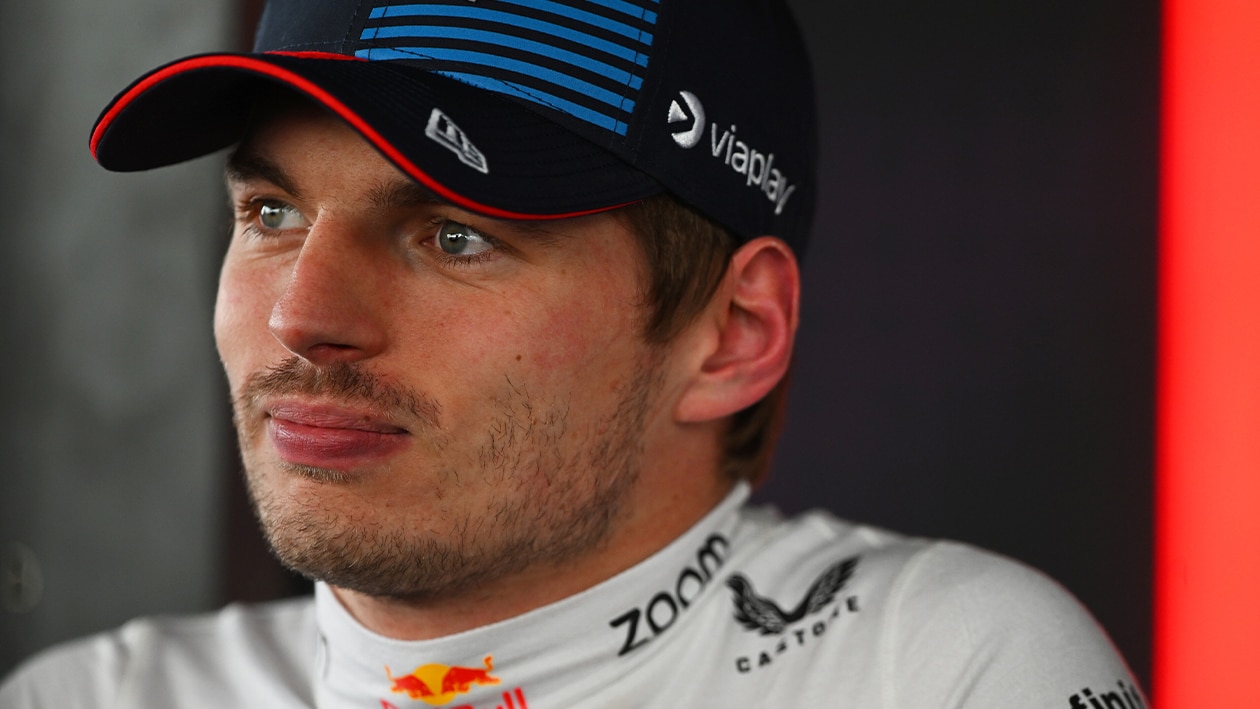
It’s hard to believe Max Verstappen is as young as he is. At 27, the Dutchman has already won 65 grands prix — the first of which came on his Red Bull debut when he was just 18 — and captured four consecutive drivers’ world titles since 2021.
His aggressive manoeuvres continue to bring complaints from other drivers, but Verstappen has rarely looked ruffled in the face of adversity: taking the fight to Lewis Hamilton and Mercedes in 2021, before squashing the title hopes of Charles Leclerc in 2022 and of Lando Norris in 2024.
His latest championship showed that he doesn’t need the fastest car to come out on top. When exactly will this winning machine stop?
Max Verstappen profile & results
8. Jackie Stewart
99 starts/17 pole positions/27 wins
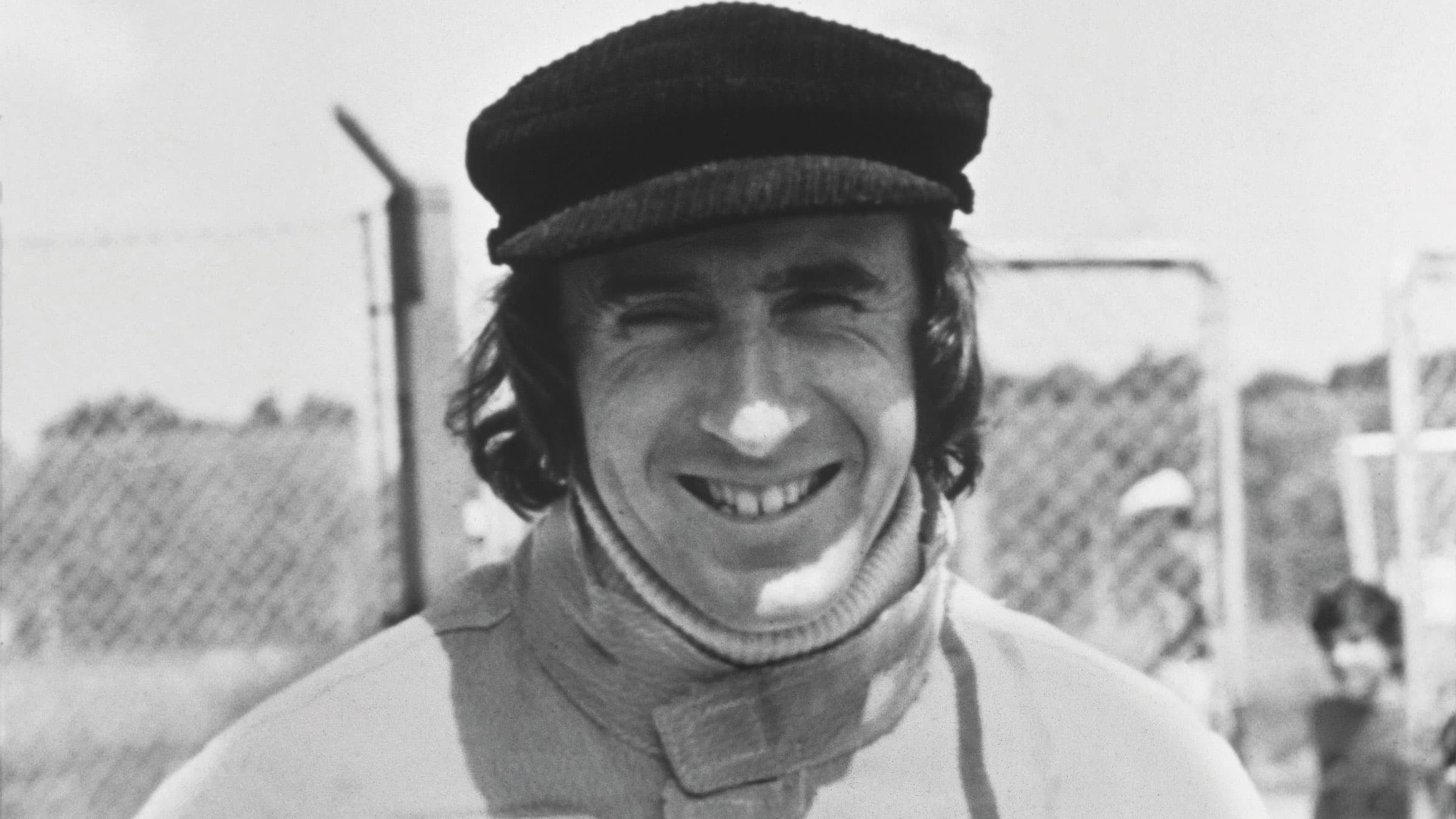
Sir Jackie Stewart was the man who accepted the responsibility of ridding motor sport of its gladiatorial excesses. It was dirty and unpleasant but he did it. And the reason he held the formidable authority he did was his towering driving ability.
Opting for BRM over Lotus in 1965, Stewart earned his first F1 world championship race at Monza, a result which ultimately meant he finished third in the season standings behind Clark and Hill.
After a few years of frustration, the Flying Scot began his legendary partnership with Ken Tyrell — a relationship which would eventually blossom 25 race wins, 17 pole positions, 35 podium finishes and three drivers’ world titles.
Stewart should have bowed out on a high, having secured his final world title in 1973 and won safety improvements including larger run-off areas, better barriers, a dedicated medical unit, full-face helmets and seatbelts. However, his charismatic team-mate and intended successor François Cevert crashed and was killed at Watkins Glen. The team pulled out and Jackie Stewart entered retirement.
Jackie Stewart profile & results
7. Alain Prost
199 starts/33 pole positions/51 wins
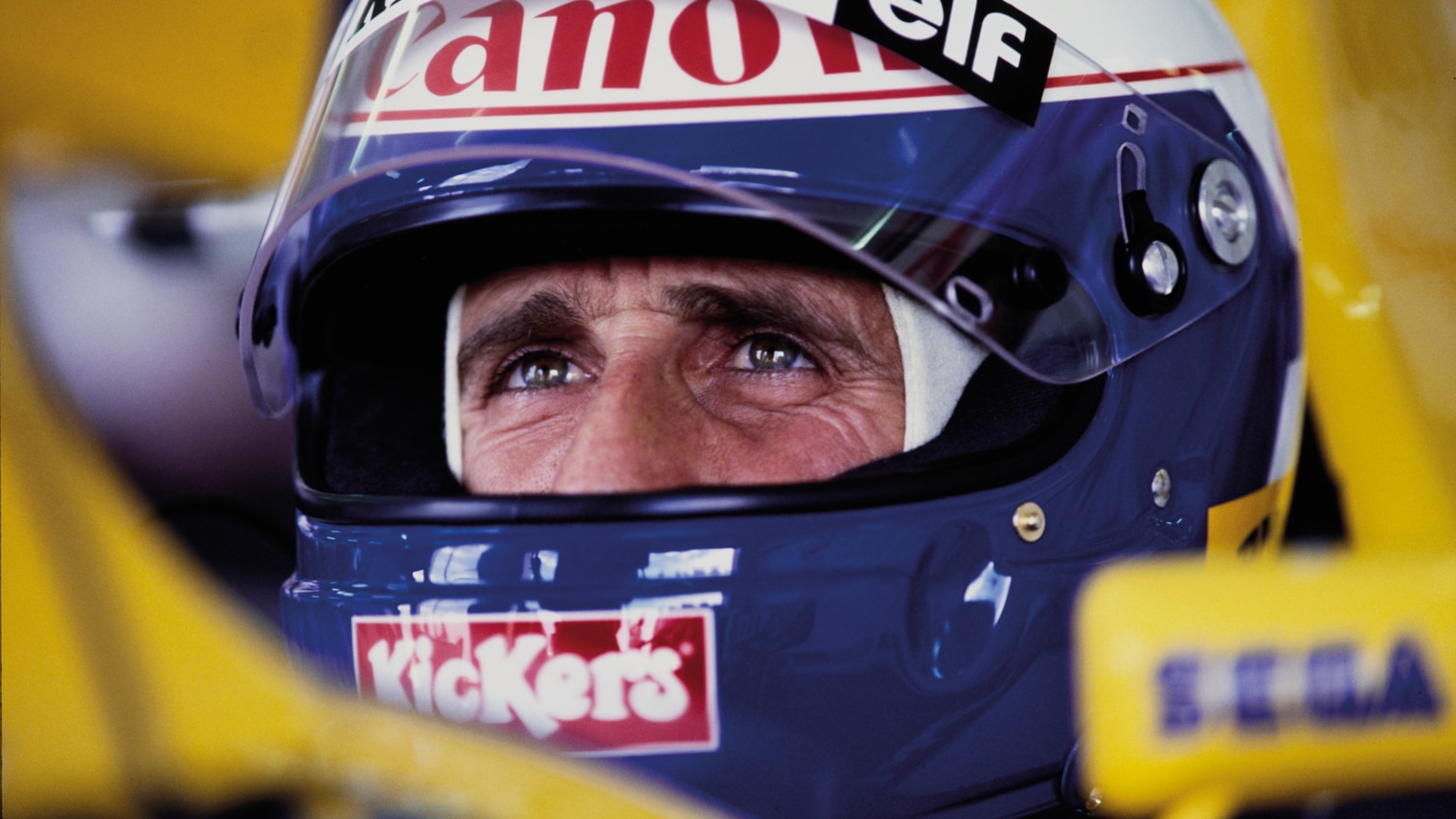
In an era that included Nigel Mansell, Ayrton Senna and Nelson Piquet, Alain Prost was the most successful grand prix driver around.
Although capable of blinding pace, speed was only one element of the Frenchman’s skill. His awareness of what was needed covered all frequencies, and often, like Lauda, the depth of his intellect ensured that his best work was done before the race weekend. Once there, he could read a race like a book, and if ever there’s been a racer kinder on tyres his name can only be Clark.
Four world titles with two different constructors — McLaren (1985, ’86, ’89) and Williams (’93) — and 51 race victories was the result, placing Prost among the most statistically impressive drivers in F1 history.
But it looks as if his career will continue to be defined by his tussles with Senna — of which there were many.
6. Michael Schumacher
306 starts/68 pole positions/91 wins
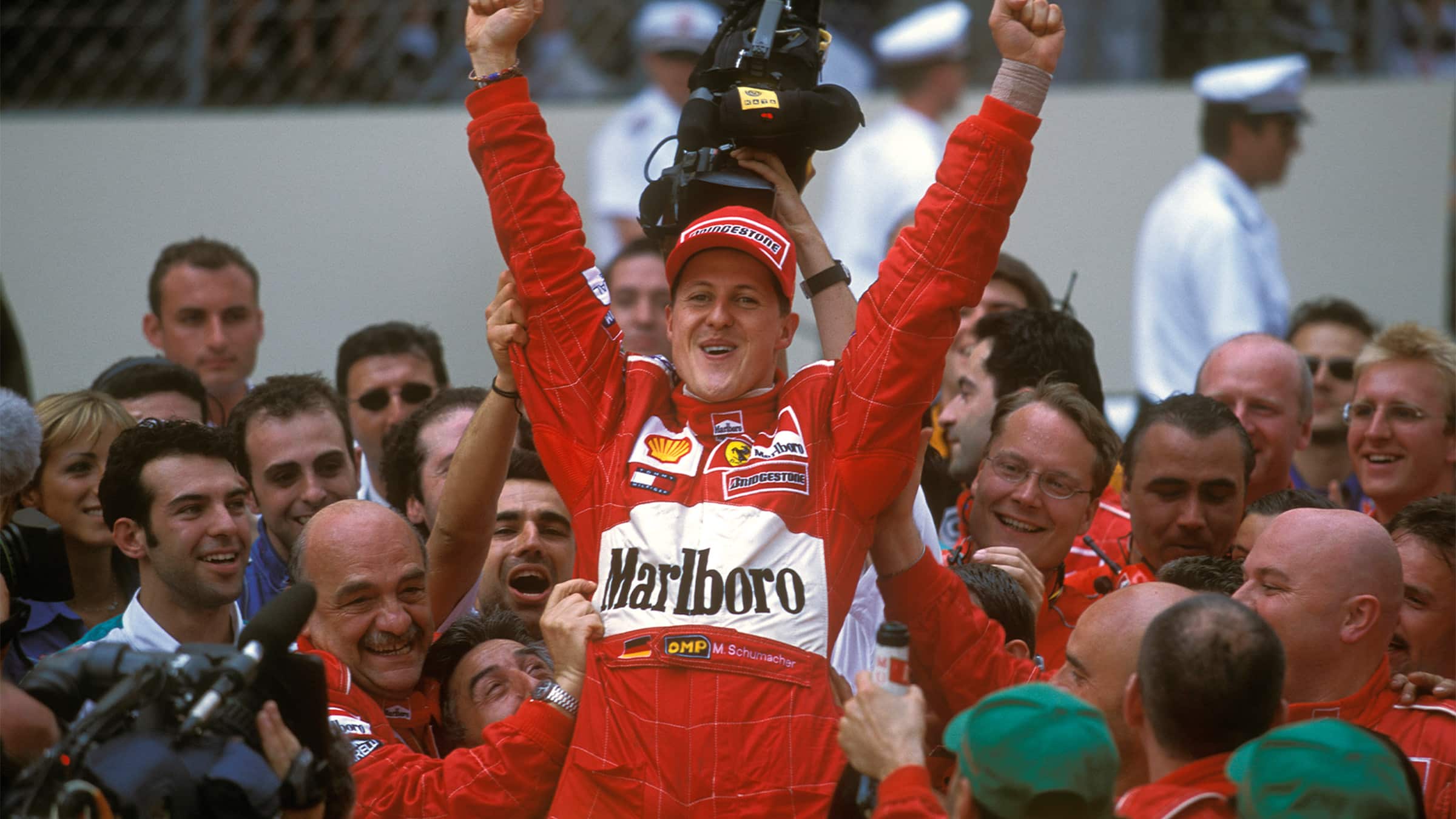
You could see Michael Schumacher as a merger of the very best attributes multiple grand prix legends.
He had the dare of Villeneuve, the adaptability of Stewart, the wet weather ability of Senna, the opportunism of Jones and the detail-driven mind of Prost. The result of that concoction was record breaking.
91 race victories, 68 pole positions and 64 podium finishes ultimately earned Schumacher seven drivers’ world titles — two with Benetton in 1994 and ’95 and then five with Ferrari in 2000, ’01, ’02, ’03 and ’04.
“He could make any old piece of rubbish go fast,” recalled James Allison, now Mercedes’ technical director. “It really didn’t matter if the car was ill-balanced or a bit of a pig, he would find a way to drive it round a lap and get pace out of it.”
Michael Schumacher profile & results
5. Stirling Moss
67 starts/16 pole positions/16 wins
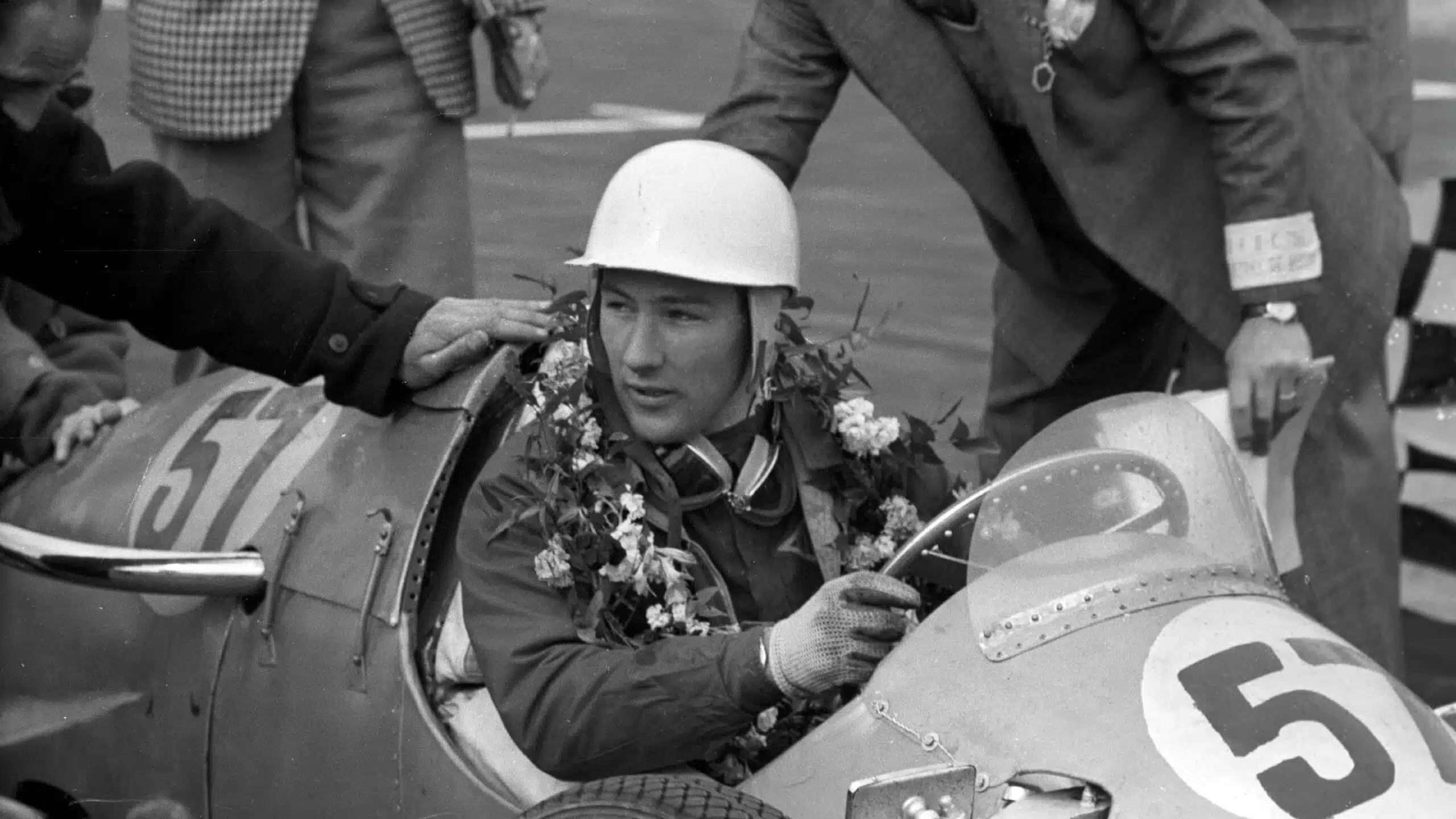
The fact that the list of F1 world champions does not feature Stirling Moss is more an indictment of the championship than of him.
The Briton was one of those very special talents who could seemingly transcend the accepted definition of possible and his reputation has rung through the generations since.
Even the competition — which included the likes of Juan Manuel Fangio, Mike Hawthorn, Phil Hill, Wolfgang von Trips, and Jack Brabham — would occasionally acknowledge that his skills were of a different order to theirs.
Between 1955 and 1961, he won 16 grands prix, finished second in the world championship standings four times and finished third three times.
Only sheer misfortune prevented Moss from claiming F1’s ultimate prize, and a career-ending accident in 1962 ultimately sparked questions as to what might have been.
Stirling Moss profile & results
4. Juan Manuel Fangio
51 starts/29 pole positions/24 wins
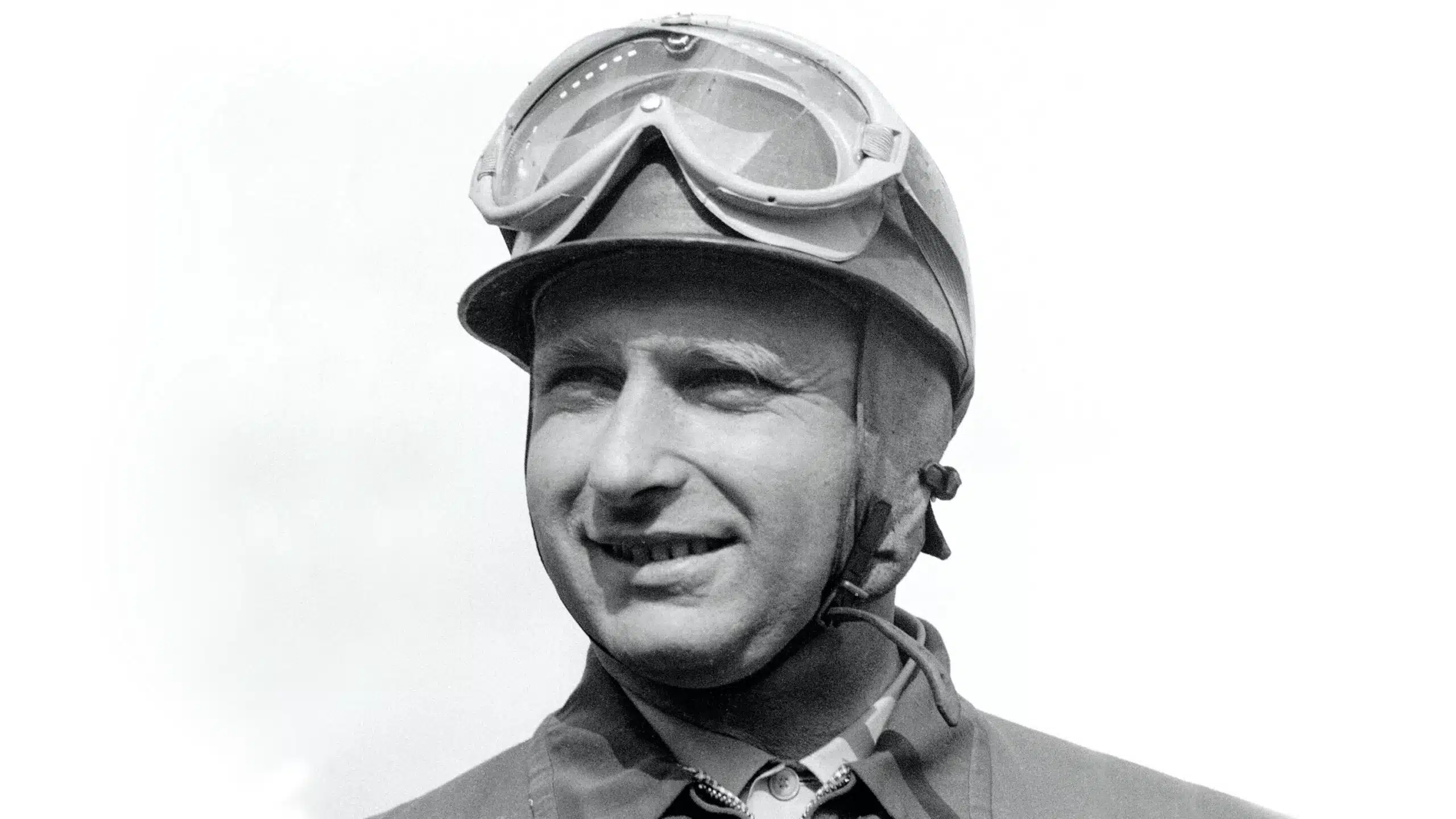
Juan Manuel Fangio was F1’s first dominant figure, and his success ratio remains unsurpassed.
His bald world championship race statistics tell the story of his reign: Fangio drove in 51 premier-level grands prix in the period 1950-58, starting all but two of these from the front row — 29 from pole.
He set 23 fastest laps, won 24, and was placed second 10 times, third once, and fourth six times.
His success ultimately earned him five drivers’ world titles — four of which came successively between 1954 and 1957.
Fangio was an old soul — so wise yet humble — and rarely did more than what was necessary. But when he summoned his reserves, like that day at the Nürburgring in ’57, lapping 11sec faster than his pole time as he hared after the leading Ferraris, the opposition reeled, open-mouthed that such ferocity could reside in such an ostensibly gentle frame.
Juan Manuel Fangio profile & results
3. Ayrton Senna
161 starts/65 pole positions/41 wins

Ayrton Senna was a natural talent visible to all, whether threading his McLaren inch-perfectly through the Monaco barriers, walking on water at Donington, or pouring his soul into a home victory in São Paulo, before a jubilant Brazilian public chanting his name.
He knew he was the best of his time and it was his apparent conviction that this should translate into results that sometimes led him, as a last resort, to on-track thuggery — against Prost most of the time.
But his results remain hard to ignore.
Across a decade in F1, up until his tragic death at Imola in 1994, Senna captured 41 grand prix victories, recorded 65 pole positions and earned three drivers’ world championships.
Ayrton Senna profile & results
2. Lewis Hamilton
367 starts/104 pole positions/105 wins

With an exquisite sense of a Formula 1 car’s limit, Lewis Hamilton can extract more performance from a grand prix machine than almost anybody else in the sport’s history.
He is blessed with an off-the-scale talent that’s seen in explosive qualifying laps and searing race pace, but it’s not only speed that has earned the seven-time world champion more race wins (105) than any other driver — ever, and a record number of titles that he shares with Michael Schumacher.
His racecraft, the uncanny ability to put himself in the right place when wheel-to-wheel with a rival, invariably to pull off the pass, has ultimately allowed him to top the podium when he really shouldn’t have, and he’s the master of modern requirements, such as tyre preservation and consistent lap times, which unlock new strategic options for him and his team.
Few were more destined for success than Hamilton who, with a fanatically supportive father, broke through the ranks of junior karters with modest means, famously collared McLaren boss Ron Dennis for his phone number at the age of ten, and secured a contract with the team three years later.
That unwavering level of self-confidence has kept Hamilton at the top for over two decades, setting new levels for driver longevity, but now Hamilton faces a new test. Having left the familiarity and proven abilities of Mercedes, he’s now looking to win a championship with a third team, having joined Ferrari in 2025. Watch this space.
Lewis Hamilton profile & results
1. Jim Clark
72 starts/33 pole positions/25 wins
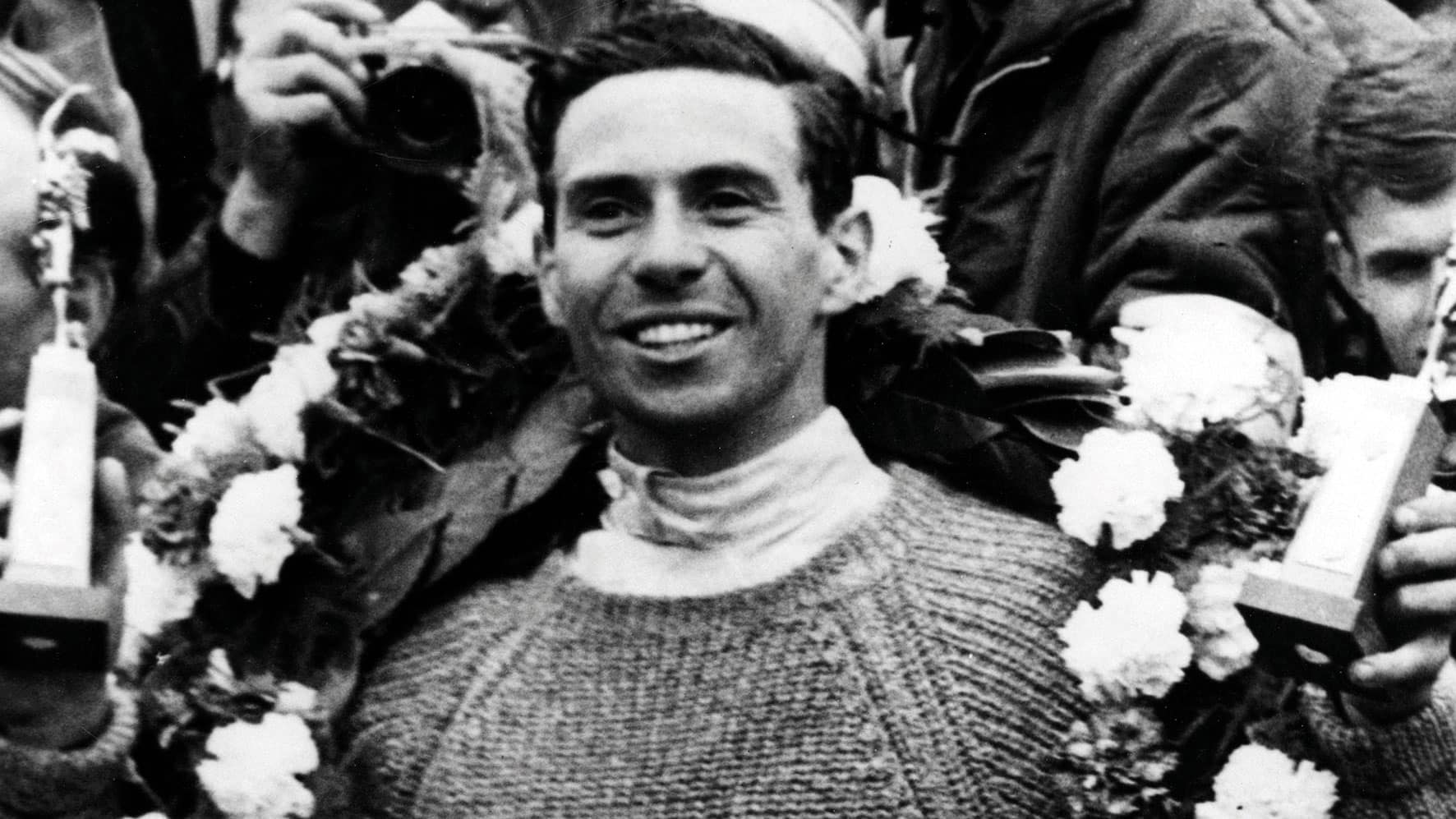
In an era that contained Jackie Stewart, John Surtees, Graham Hill and Jack Brabham — all of whom would be world champions — Jim Clark operated at a totally different speed, at more frames per second.
That was a reflection of the scale of his talent, phenomenal even by the highest of standards.
But more than any other driver, Clark had to be considered as half of a partnership; he and Colin Chapman inspired each other in a joint quest to dominate, not merely win.
This made the markers of his competitive striving different to others. You tended not to see evidence of an aggressive will in traffic, for instance, because if he was in the pack it meant something was wrong; he was supposed to be out front immune from it all. Invariably, he was.
Between 1962 and 1968, this shy Scottish sheep farmer secured more pole position starts (32) and won more F1 Grand Prix (25) than anyone else, and captured two drivers world titles.
If not for a tragic accident at Hockenheim in 1968, Clark’s legend could have continued to grow exponentially.

